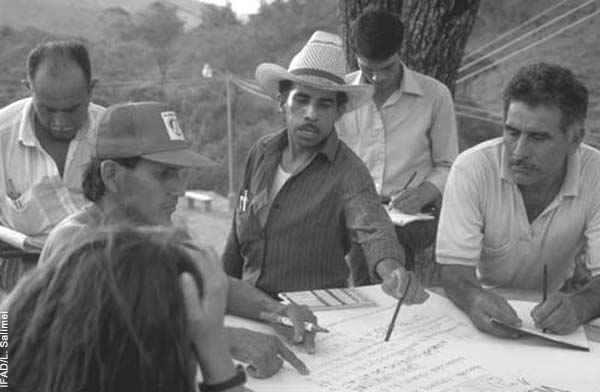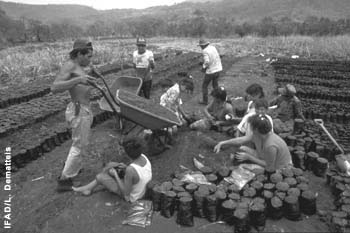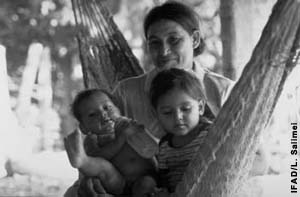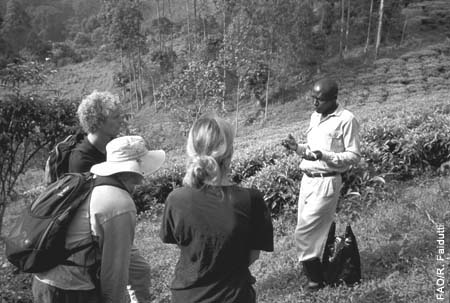
IFAD and FAO are contributing to a new phase in a long-running development programme in Central America. The two agencies have been cooperating in the Regional Unit for Technical Assistance (RUTA), established in 1982. IFAD's Executive Board in 2004 approved a grant of US$1,23 million for RUTA Phase VI. FAO contributed $570,000 essentially in staff assistance.
RUTA is a joint initiative for rural development that brings together seven national governments and seven international agencies. Its overall aim is to reduce poverty in the region's rural areas and to support sustainable development.
In Central America, about two thirds of poor people live in rural areas. Development progress in the region as a whole has been uneven over the past decade.
The programme unites the governments of Belize, Costa Rica, El Salvador, Guatemala, Honduras, Nicaragua and Panama with seven development partners: the United Kingdom of Great Britain and Northern Ireland's Department for International Development, the Inter-American Development Bank, the Inter-American Institute for Cooperation on Agriculture, the International Food Policy Research Institute and the World Bank, in addition to FAO and IFAD.

RUTA works to reduce rural poverty by formulating policies and projects, leading rural studies, assisting with project implementation and facilitating dialogue. In a part of the world where widespread poverty and environmental degradation form a vicious circle, it also promotes sustainable management of natural resources, lending technical support to a number of projects in the region that aim to protect the environment.
The programme has a particular focus on improving living conditions and incomes for women and indigenous peoples. In an age of rapidly advancing technology, addressing loss of livelihood and the problems that result is another priority area.

RUTA usually works at the institutional level. The programme cooperates with governments to identify the most effective ways of reducing poverty - the policies and strategies that are stepping stones to a better future for rural poor people. Among its partners are government ministries (above all those concerned with agriculture and the environment), international agencies, project implementation units and organizations representing rural poor people.
Capacity building is a vital part of RUTA's work. The key objective is to strengthen the institutional environment, enabling the agricultural sector in these countries to deal with changes in the global market for agricultural products. This might mean, for example, working with agricultural colleges or other service providers to help producer associations develop the skills and knowledge they need to participate in international markets; or providing technical assistance to analysts in agriculture ministries, so that they can evaluate the impact of different policies.
At the regional level, RUTA also works in the area of international agricultural trade. It is currently analyzing the impact of the Central American Free Trade Agreement (CAFTA), helping governments and their populations prepare to take advantage of the opportunities that should result, while minimizing potential negative impacts.
Mountain Day to urge low-impact tourism

“Sustainable Tourism for Poverty Alleviation in Mountain Areas” is the message of this year's International Mountain Day (11 December 2005). FAO, the agency designated to lead observance of the Day, is producing a series of communication products on the theme. It is also encouraging Rome-based organizations including IFAD and WFP, representatives of countries, NGOs and major groups to promote events at the national and international level in observance of the Day. The aim is to raise awareness about the perils and potentials of tourism in mountains - home to the world's poorest and hungriest. In calling for sustainable tourism, FAO and its partners are urging types of tourism that have low impact on the environment and local culture, employment- and income-generating benefits for local communities and a conservation effect on local ecosystems. For further information, contact: [email protected]